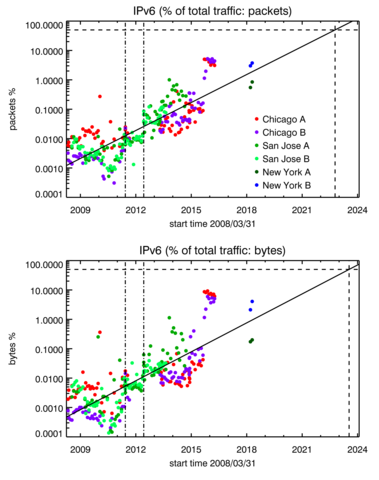For the last 20 years UC San Diego’s Center for Applied Internet Data Analysis (CAIDA) has been developing data-focused services, products, tools and resources to advance the study of the Internet, which has permeated disciplines ranging from theoretical computer science to political science, from physics to tech law, and from network architecture to public policy. As the Internet and our dependence on it have grown, the structure and dynamics of the network, and how it relates to the political economy in which it is embedded, is gathering increasing attention by researchers, operators and policy makers, all of whom bring questions that they lack the capability to answer themselves. CAIDA has spent years cultivating relationships across disciplines (networking, security, economics, law, policy) with those interested in CAIDA data, but the impact thus far has been limited to a handful of researchers. The current mode of collaboration simply does not scale to the exploding interest in scientific study of the Internet.
On a more operational dimension, large-scale Internet cyber-attacks and incidents — route hijacking, network outages, fishing campaigns, botnet activities, large-scale bug exploitation, etc. — represent a major threat to public safety and to both public and private strategic and financial assets. Mitigation and recovery, as well as prevention of further attacks of similar nature, are often impeded by the fact that such events can remain unnoticed or are hard to understand and characterize. Because of their macroscopic nature, identifying such events and understanding their scope and dynamics requires: (a) combining data of different type and origin; and (b) teamwork of experts with varied background and skills; (c) agile tools for rapid, cooperative, interactive analysis.
These two infrastructure research challenges will require high performance research infrastructure, and CAIDA will embark on a new stage in our infrastructure development endeavors to support these challenges, re-using and sharing software and data components wherever possible. We will integrate existing as well as develop new measurement and analysis components and capabilities into interactive online platforms, accessible via web interfaces as well as APIs. These novel developments will enable researchers from various disciplines including non-networking experts to access and productively use Internet data, thus advancing more complex and visionary scientific studies of the Internet ecosystem. We hope these efforts will enable us and others to widen access to and utility of the best possible Internet measurement data available to research, operational, and policy communities worldwide.
On the research side, we will continue our Internet cartography efforts, improving our IPv4 and IPv6 topology mapping capabilities, and our ability to measure and analyze interdomain congestion. We will also continue development our of Internet Topology Data Kit (ITDK) data sets, but shift our focus to simplified versions of the data and visual interfaces that are easier for researchers to use. We will undertake a new project that studies topological weaknesses from a nation-state security and stability perspective. We will explore implications of these analysis for network resiliency, economics, and policy. Among our new collaborations is an interdisciplinary project to model and design an ecosystem for market-mediated software defined communications infrastructure at the wireless edge. And in the intersection between research and infrastructure, we will start a new research project that explores an ambitious new way of designing measurement infrastructure platforms to facilitate broader deployment and sharing of nodes across scientific experimenters.
As always, we will lead and participate in tool development to support measurement, analysis, indexing, and dissemination of data from operational global Internet infrastructure. Our outreach activities will include peer-reviewed papers, workshops, blogging, presentations, educational videos, and technical reports.
Note that not all of the activities described in this program plan are fully funded yet; we are seeking additional support to enable us to accomplish our ambitious agenda.
